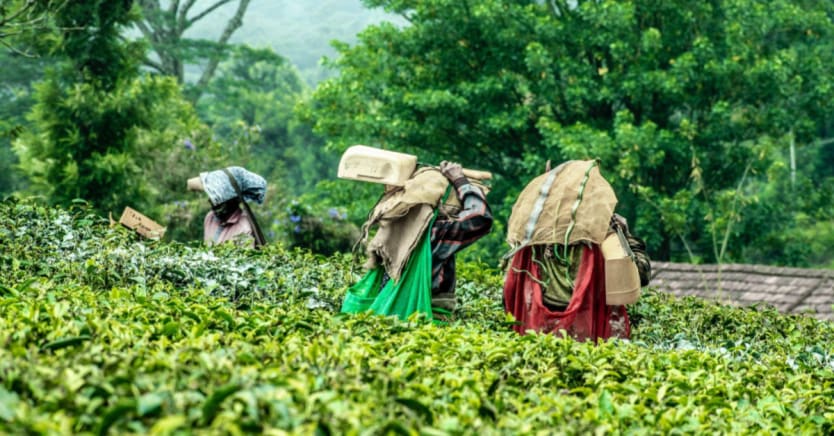
May 31 marks the 34th annual World No Tobacco Day. It has been more than half a century since the use of tobacco was first associated with poor health, yet it is causing more harm than ever. Every year it leads to more than 8 million preventable deaths, of which 2.4 million are from cancer. Governments have not introduced or implemented sufficient policies to protect people’s health from tobacco, meaning that millions of families are affected by the premature deaths caused by tobacco use each year.
This year’s theme for World No Tobacco Day — Tobacco: Threat to our Environment — signifies a shift of focus from its impact on health to the wider impacts of tobacco. Embracing tobacco’s threat to our environment is an important step to engaging more diverse groups and raising awareness of the impact tobacco and the tobacco industry have on society. It is critical that the tobacco control sector unites to advocate for these broader issues. By doing this, we can exert pressure on governments to implement policies and embolden them to overcome interference from the tobacco industry.
A multifaceted problem
The pervasive techniques used by the tobacco industry to attract and keep consumers addicted to a product that is killing them are well known. When a product kills up to half of its users, those users need to be replaced. It is an immoral corporate business model that sacrifices health and the environment for the sake of profit.
While tobacco use affects health, the production and disposal of tobacco damages the environment, which in turn has further adverse impacts on health. At every stage of its supply chain, tobacco leaches human and environmental resources. Tobacco companies encourage deforestation to grow tobacco crops. Cultivating tobacco damages soil fertility, degrades soil quality over time, and requires significant amounts of water. Harvesting tobacco also exposes workers to dangerous chemicals and to “green tobacco sickness.” With child labor being common in tobacco cultivation, the burden of tobacco production is transferred onto the next generation and negatively affects their ability to thrive.
Even before someone smokes a cigarette, the production of that cigarette has caused significant damage to both health and the environment. Once that cigarette is smoked, it will contribute to the 4.5 trillion that are littered each year, releasing health-harming microplastics into the environment.
The burden of tobacco in LMICs
The total impact of tobacco consumption and its supply chain is felt more in low- and middle-income countries, which comprise 9 out of the top 10 tobacco producers. With the tobacco industry extensively marketing its products to LMICs, it is predicted that by 2030, more than 80% of tobacco-related deaths will occur in these countries, exacerbating existing global health inequities.
The industry used the COVID-19 pandemic as an opportunity to deliver corporate social responsibility initiatives that would strengthen their influence on governments in low- and middle-income countries. At the same time as COVID-19 — a disease affecting respiratory health — ravaged the world, new product launches by the tobacco industry and extensive marketing to customers in LMICs in Asia and Africa meant that the global tobacco market was valued at $849.9 billion in 2021. The industry profited while costing the world “an estimated $1.4 trillion in health care costs, lost productivity, fire damage, environmental harm from cigarette litter and destructive farming practices.”
Cancer Research UK and the Union for International Cancer Control advocate for the implementation of tobacco control policies in LMICs. Our goal is to drastically reduce the number of people dying from or living with tobacco-related cancers globally. We currently work in coalition with organizations to advocate for the World Health Organization’s Framework Convention for Tobacco Control by supporting civil society to advocate for governments to implement tobacco control policies.

Call for collective action
To achieve further success, health-focused organizations need to work with others to position tobacco as not just a health issue, but also an environmental, gender, youth, and — as a consequence — a human rights issue. By mobilizing a diversity of civil society groups, we can exert the pressure required on governments to introduce effective tobacco control policies.
“Developing policy against tobacco will have far-reaching benefits beyond health.”
—The need for building coalitions that involved multiple sectors was reflected by tobacco control experts in a series of interviews CRUK and UICC conducted. These experts were advocates that represented national, regional, and multilateral organizations. We wanted to understand the challenges and opportunities that individuals within tobacco control have identified throughout their years of working in the field, for us to ensure that our work adds value and helps progress toward realizing the FCTC. Experts identified a need for coordination and collaboration between stakeholders in tobacco control because of its internationally siloed nature, and to think beyond usual suspects and bring in other organizations and interests to achieve impact.
Creating a coalition of advocates to deliver a coordinated campaign for tobacco control implementation offers an opportunity. Civil society holds a wealth of knowledge and experience in advocating cross-cutting issues that we can mobilize to ‘‘rally around a common goal.’’ CRUK and UICC will work together to initiate and encourage such collaboration and invest in new groups who can further progress implementation of the FCTC at the national level. We will also engage other relevant United Nations and multilateral agencies who work on issues affected by tobacco to ensure that advocacy efforts are felt at the global level.
We welcome this year’s World No Tobacco Day theme of Tobacco: Threat to our Environment as signaling a transition to a more holistic approach to addressing tobacco and the tobacco industry. When the health of the environment is at the forefront of the global agenda, it is critical to raise how tobacco affects our environment, and that developing policy against tobacco will have far-reaching benefits beyond health. Every sector that tobacco touches should unite to raise awareness of its negative impact; to connect powerful groups of advocates to work toward the same goal and eliminate tobacco to save people’s lives and protect the environment.









